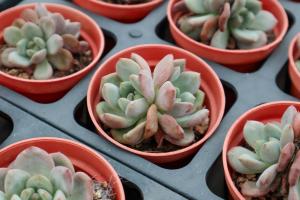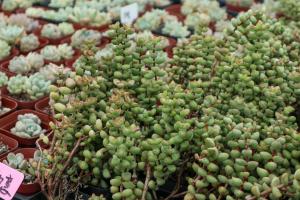Why Biodegradable Plant Pots Avoid Root Growth Isn't as Inhibited
When it comes to planting, one of the most important factors to consider is the type of pot in which the plant will grow. Biodegradable plant pots have gained popularity over the years, as people have become more aware of the environmental impact of plastic pots. But one question that often arises is whether biodegradable pots can inhibit root growth. Let's explore the answer to this question.
Understanding Biodegradable Plant Pots
Biodegradable plant pots are made of materials that break down over time, allowing the plants to be directly transplanted into the soil. These materials include coir, peat, and biodegradable plastic made of cornstarch. Unlike plastic pots, biodegradable pots have a limited lifespan, reducing the environmental impact and waste of non-biodegradable materials. But this raises the question, are they as effective in supporting plant growth as plastic pots?
The Reason Biodegradable Pots Avoid Inhibiting Root Growth
One of the most significant advantages of biodegradable plant pots is that they allow the roots to grow through the pot's walls better. As the plant matures and the roots become denser, they can easily penetrate the porous material. This penetration allows the roots to absorb more water and nutrients from the soil, promoting healthy growth. On the other hand, plastic pots have a much smoother surface, making it difficult for roots to penetrate, reducing the amount of water and nutrient uptake available to the plant.
Additionally, plastic pots trap the roots and cause them to spiral inside the container, leading to a phenomenon known as root-bound. Root-bound plants have roots that grow in a circular pattern, ultimately stunting plant growth due to the plants not developing a robust root system to sustain healthy and strong growth. Biodegradable plant pots promote a more natural growth pattern, allowing the roots to grow outwards and downwards from the seed, leading to better root development, plant growth and health.
The Environmental Benefits of Biodegradable Plant Pots
It is no secret that plastics have a severe impact on the environment. It can take hundreds or even thousands of years for plastic to decompose, leading to a massive buildup of waste in our landfills and oceans. Biodegradable plant pots are an eco-friendly way to support healthier plant growth while contributing to a cleaner environment. These pots break down naturally in the soil, meaning they can be discarded with the plant and avoid adding further waste to the environment. These plant pots support the principle of sustainability, which aims to preserve natural resources for future generations.
Conclusion
Biodegradable plant pots are an excellent alternative to traditional plastic pots. They promote root growth by providing a porous and natural material for the roots to expand and absorb water and nutrients from the soil. Additionally, these containers support sustainability, contributing to a cleaner environment. It is clear why biodegradable plant pots avoid root growth inhibition when it is necessary for healthy and robust plant growth.

 how many times do yo...
how many times do yo... how many planted tre...
how many planted tre... how many pine trees ...
how many pine trees ... how many pecan trees...
how many pecan trees... how many plants comp...
how many plants comp... how many plants can ...
how many plants can ... how many plants and ...
how many plants and ... how many pepper plan...
how many pepper plan...































